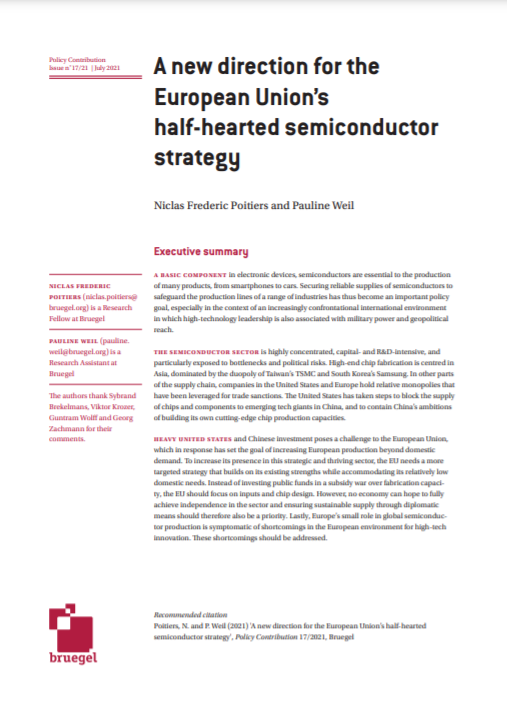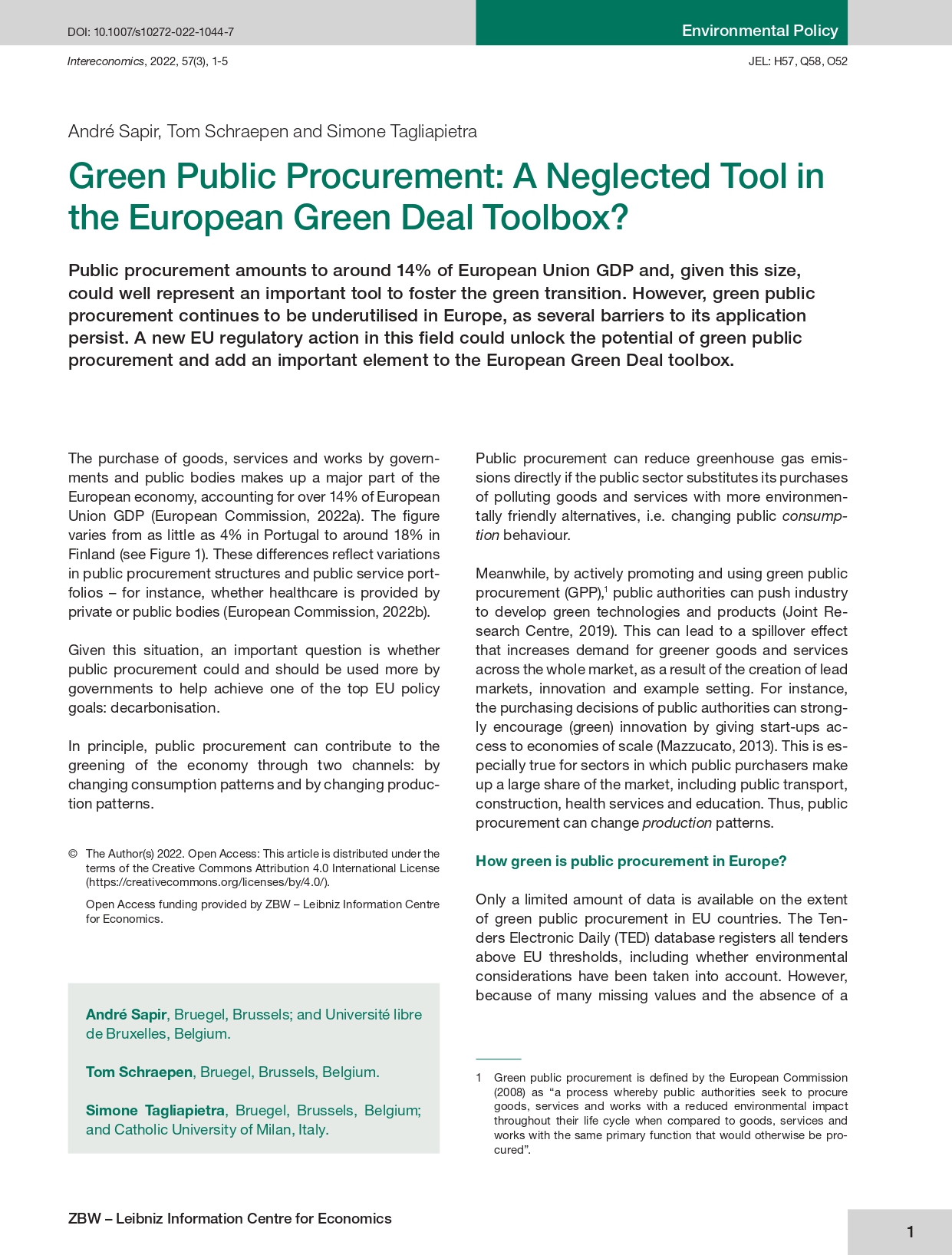Policy Contribution
A new direction for the European Union’s half-hearted semiconductor strategy
The EU needs a more targeted strategy to increase its presence in this strategic and thriving sector, building on its existing strengths, while accommodating its relatively low domestic needs.
The authors thank Sybrand Brekelmans, Viktor Krozer, Guntram Wolff and Georg Zachmann for their comments.
A basic component in electronic devices, semiconductors are essential to the production of many products, from smartphones to cars. Securing reliable supplies of semiconductors to safeguard the production lines of a range of industries has thus become an important policy goal, especially in the context of an increasingly confrontational international environment in which high-technology leadership is also associated with military power and geopolitical reach.
The semiconductor sector is highly concentrated, capital- and R&D-intensive, and particularly exposed to bottlenecks and political risks. High-end chip fabrication is centred in Asia, dominated by the duopoly of Taiwan’s TSMC and South Korea’s Samsung. In other parts of the supply chain, companies in the United States and Europe hold relative monopolies that have been leveraged for trade sanctions. The United States has taken steps to block the supply of chips and components to emerging tech giants in China, and to contain China’s ambitions of building its own cutting-edge chip production capacities.
Heavy United states and Chinese investment poses a challenge to the European Union, which in response has set the goal of increasing European production beyond domestic demand. To increase its presence in this strategic and thriving sector, the EU needs a more targeted strategy that builds on its existing strengths while accommodating its relatively low domestic needs. Instead of investing public funds in a subsidy war over fabrication capacity, the EU should focus on inputs and chip design. However, no economy can hope to fully achieve independence in the sector and ensuring sustainable supply through diplomatic means should therefore also be a priority. Lastly, Europe’s small role in global semiconductor production is symptomatic of shortcomings in the European environment for high-tech innovation. These shortcomings should be addressed.
Recommended citation:
Poitiers, N. and P. Weil (2021) ‘A new direction for the European Union’s half-hearted semiconductor strategy’, Policy Contribution 17/2021, Bruegel











